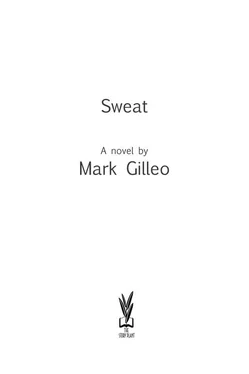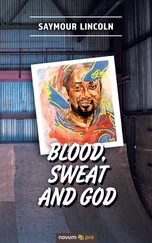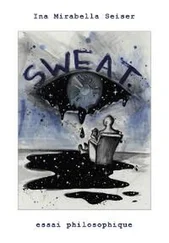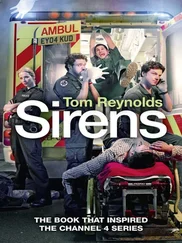“I don’t know if I would call it exploitation.”
“Jesus, Jake, maybe you are like your father. It is racial exploitation. Is there any place in the world where American companies are exploiting the white race? Anywhere?”
“I guess not.”
“Of course not. But if these companies are exploiting the less fortunate in Latin America, Asia, India or Africa, it is fine.”
“But the workers are better off. They are making more money.”
“The average salary of the average worker in these locations is low because they are employed by domestic companies, which in most developing countries are corrupt and inefficient. They pay their workers crap because they make crap, goods you couldn’t sell at a yard sale. American companies can afford to pay these workers a lot more than they do. Hell, these American companies aren’t looking for cheap labor—they are looking for free labor. If America and its companies wanted to make a difference in these people’s lives, pay them a couple of dollars an hour. See what it will do to the standard of living. Don’t insult these people with what equates to an increase in hay rations for human donkeys. When it comes to American companies, American policy is the most racist machine on the face of the earth.”
“I don’t know,” Jake said.
“Jake, what is the greatest manmade tragedy you can remember, outside of war?”
“9/11.”
“Fair answer. And how many people died?”
“Just under three thousand, give or take. I’m not sure of the final number.”
“Three thousand innocent people.”
“That’s a lot.”
“You ever hear of a place called Bhopal?”
“Yeah, it’s in India.”
“What is it famous for?”
“Some gas leak.”
“Very good. Not many people your age have ever heard of Bhopal. Union Carbide built a plant in India in the early eighties claiming they were going to bring jobs to a city teeming with potential. A year later, a chemical leak occurred in a densely populated area. Any idea how many people died in Bhopal?”
“A thousand?” Jake guessed.
“Twenty thousand, though the official number is up for debate and always will be. Union Carbide was built a couple of miles from the central train station in the middle of the city. Between the plant and the train station was one of the largest squatters’ villages in India. When the gas leaked from the facilities, it crept over the squatters and smothered them while they slept. There was no way to accurately count the bodies. Internal estimates at the State Department, from people on site, put the number at close to twenty thousand. That is seven World Trade Centers. Put another way, imagine one hundred loaded 747s crashing in a single night. A U.S. company killed twenty thousand people and no one can remember it today. Why?”
“Because they were Indian.”
“Exactly. They weren’t people. Hell, they weren’t even numbers. At least numbers get counted. These people were inconsequential nothings. And that is what is wrong with American policy.”
“The world is screwed up.”
“Yes it is. And that is the political level, which spills over into the personal level. Mail-order brides, prostitution, pornography, sex tours. These are all the same, all exploitation. Asia is the center. The conduct of companies and individuals, backed by policy or no policy, perpetuates looking at these foreigners as objects, not people. That is the end result. And Chang Industries, your father, Senator Day, they are a combination of all of these. A sweatshop using their employees as labor, selling them out as prostitutes at night. They are the scum on the inside of the outhouse shit-tank, Jake.”
Heavy silence fell on the two.
“So what do I do?”
“I have an idea. But it is going to take a little luck and a lot of guts.”
When Al finished telling Jake his plan, one thing was clear. They were going to need help. Jake’s first thought was his friends. Friends who were currently in Europe, bouncing around Prague, Budapest, and Rome. Jake needed help, and for the love of God, only one thing came to mind.
“Try to get some sleep, Jake,” Al said, interrupting his visitor’s introspection. “You’re going to need it.”
“Why do you say that?”
“Well, if you manage to save this girl, things are likely to get hot around here.”
“You mean if we manage to save this girl.”
“Jake, I would love to go with you, but I don’t fly. Not yet. I’m crossing one bridge at a time, and that one is a little longer than I am ready for.”
“Al, you can’t leave this all to me.”
“I’ll do everything I can, but getting on an airplane isn’t on the list.”
“If we do this thing, how long will it take you to organize it?”
“Couple of days.”
Jake felt like hiding, but he already was. He was under a bridge, sleeping with the homeless. He had one idea and admitted to himself that it wasn’t a good one. “Maybe I’ll bring some people with me. Some muscle,” Jake said, trying to convince himself he wasn’t crazy.
“You have muscle, Jake? You didn’t tell me that you have muscle,” Al said, ribbing his friend.
“You know how you said fear is a good emotion?”
“Yes.”
“Well I am tingling with it.”
“Just remember, Jake. If you want to take on a senator, don’t whisper it. Yell it from the tree tops.”
With that thought, Jake got up from his uncomfortable sleeping nest and walked out from under the bridge. He waited for his cell phone to connect and when three bars indicated ample signal strength, he made the call.
Mr. Sorrentino was in bed with his wife. After apologizing profusely for the late call, Jake spoke nervously. “Mr. Sorrentino, I will agree to stop seeing Kate…”
“I knew you would come to your senses and see it my way,” Mr. Sorrentino said before Jake finished.
Jake started over. “I will agree to stop seeing Kate on one condition…”
Chapter 34
Nguyen rode shotgun as Wallace drove the car through Chinatown. A picture of Chow Ying rested on Detective Nguyen’s lap. He took intermittent glances at the photo on his thighs and looked at the faces on the street. Beyond the stereotypes, there was truth to the fact that Nguyen could look at another Asian and tell where they were from. As an Asian, he simply had an advantage in identifying and recognizing other Asians. Slight differences in the shape of the face distinguished the features of Northern Asians from their distant evolutionary kin in the south. The shape of the eyes was a second indicator of origin. And if facial features weren’t a dead giveaway, clothes and hairstyles were.
“I don’t like Chinatown,” Detective Wallace said, behind the wheel for the first time since unofficially partnering with Nguyen. “It smells.”
“What do you mean it smells? Just what smell is that, Sergeant?”
“It smells like Chinese food. Fish. Whatever. It just stinks.”
“Be thankful it’s not ‘Koreatown.’ Talk about a smell that will knock your socks off.”
“My wife would warn against knocking my socks off, but that’s a different kind of stench altogether.”
“Could have gone all year without knowing that.”
Wallace turned the cruiser north, crawling past a new restaurant on the corner called Wok n’ Roll. The line snaked out the door, past a Beijing-style basement bodega. Two floors above, a sign for the now-defunct D.C. Police Asian Liaison Unit hung on the wall, the lettering faded by the sun. Wallace nodded toward the building and Nguyen grunted an acknowledgement as he continued checking the faces of a group of Asians strolling in the crosswalk.
Wallace began giving Nguyen an unsolicited lesson in local law enforcement history. “You know, Chinatown used to be a lot wilder. When I first started, the police came down here for the occasional late night raid. They had mini-casinos on the tops of some of these restaurants. Four or five dozen Chinese guys would be in there—betting, throwing money on the table, screaming. It was like a Kung Fu movie from Hong Kong, without Bruce Lee. No one spoke English. Most were illegal. There was always a pile of drugs in the room. Heroin being smoked in some back corner. Yeah, Chinatown was definitely not a place to park your car in the evening ten, fifteen years ago. Now look at it—it’s becoming yuppie-central faster than you can order a bowl of egg drop soup.”
Читать дальше












